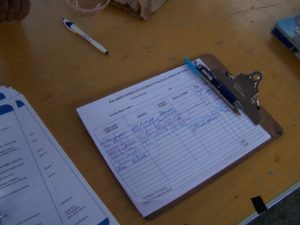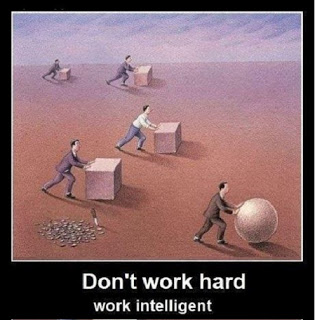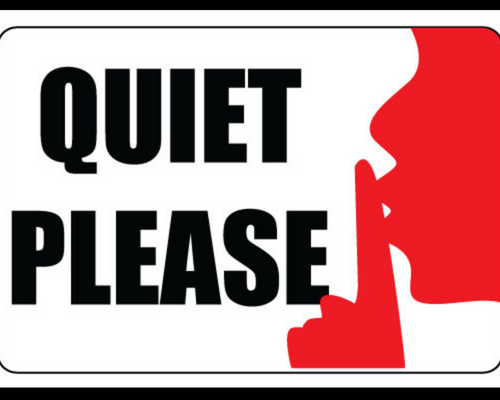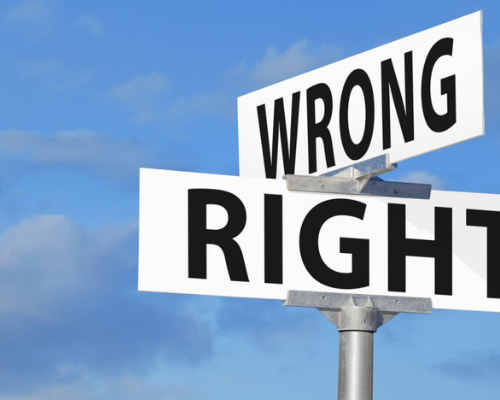The title is slightly misleading I definitely believe in working hard. But I tell you what, I’m a much bigger fan of working smart.
“Work Smart, Not Hard” is a saying I’ve always been fond of, and one that’s had a great impact on my life. In fact the philosophy of not working just for the sake of working and being wise with your time is the founding principle of this blog. I believed “Work Smart, Not Hard” was only the first step, and it must also extend to, “Living Smart” as well. If we believe in not stressing ourselves out at work then why do we stress ourselves out when we get home? We need to “Live Smart” and remove the clutter from all aspects of our lives, just as we seek to remove it from our 9 to 5.
—–
Over several years working in politics, non-profits and campaigns, I had no shortage of opportunities to meet people and gather their contact information.
Fairs, county meetings, conferences, volunteer events, speaking engagements… You name it and at one point I’ve been there, standing at a table, present with a pen and clipboard, asking them to sign up. And this is not only for a political job. Virtually every organization or business does this; tries to collect contact information for volunteers, possible voters or future customer. But here’s where almost all of them get it wrong, they’re working hard, but not very smart.
The typical campaign booth is a staff member, some type of sheet to sign up or enter a free giveaway, and a clipboard to write down their name, email, zip code, etc. It should be no secret that the main objective is to capture contact info so you can eventually reach out to that person. You want to be able to email or contact them again in the future. So why do people make it so difficult to follow up with their own contacts?

When I took over a leadership role in a campaign office implemented a rule with all of my staff and volunteers, “No paper signups.” That meant no pens, no clipboards and no spending hours on end trying to decipher 1,000 people’s email addresses after the fact. You see, after about the 100th time that I had a stack of paper sign ups with most of the data being useless, I instituted a new policy, “Everything needs to be collected electronically.” We live in the most advanced technological age in the history of civilization after all.
Why was most of the data useless? Quite simply because people don’t have clear handwriting, they’re in a rush to finish, they can read their own writing so they assume you can too, etc. It’s hard enough to decipher a person’s name if they write illegibly, (Does that say Jane or Joan…?) But when it comes to something super valuable like email? Good luck.
75% failure rate should always be labeled, “Failure”
Time and again I was seeing at least 1/2 of the data not able to be deciphered, with the most important aspect being email. And that’s being extremely generous. More often than not we were only able to capture about 25%. That means that a full 75%, or 3/4 of our time, was being wasted trying to collect information from people who we’d lose contact with. Remember, whether it’s politics or campaigns or business or a charity, it’s all about the contact information and being able to follow up with people.
And even if we were able to get most things like the name and a zip code, without a valuable email address, it was just about worthless. Even if you give me your full name and zip code, it’s going to take me, or a staff/intern an immense amount of time to pour through the white pages to find your full address. Or even if you give me your full address, it’s infinitely more expensive for me to mail you something than it is to email or call you. Even when it just comes to networking or making personal contacts, do whatever you can to capture someone’s email address.
That’s why I started all signups, giveaways and petitions on computers, tablets or ipads. The response was phenominal. Every person who wanted to enter or signup was told, “Right here on the iPad.” Were there some who balked? Sure. Were there some who said “I don’t understand that?” You bet. Did some older individuals shutter because they did not use email? Yep. But you know what? When I calculated how much data I was getting vs. the amount of time spent, the results spoke for themselves. Not only was I getting MUCH more usable data, but I was spending a fraction of the time collecting it.
30 seconds vs. 30 hours
When you determine your time cost/benefit analysis, you realize the time spent deciphering AND re-typing all of that data will take you multiple hours, if not complete days of data entry. Whereas taking that data entered electronically, will literally take 30 seconds to click some buttons to format, export, and present to you in a usable file.
When it comes to data collection, utilize every resource you have and remember to work smart. You may feel a sense of pride from finishing up 30 hours of data entry and saying, “Ah I accomplished something,” but you really shouldn’t. Instead you should say to yourself, “I think wasting 30 hours is a terrible time investment. I’d rather save myself 30 hours and use that to hold more events, raise more money or plan future projects.
You should certainly feel good when you work hard, but me, I’m a much bigger fan of working (and living), smart.





Leave a Comment
Comments are closed.